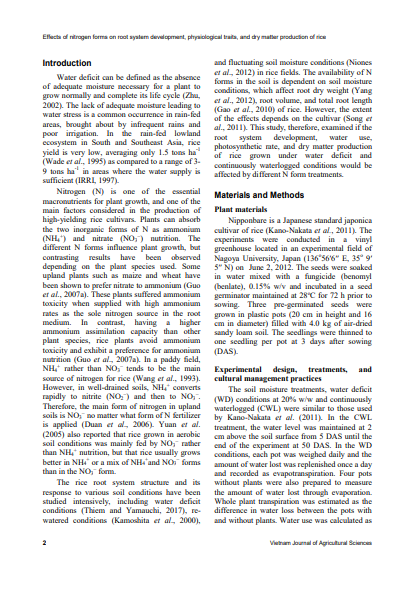Factors Affecting the Capacity of Accounting Software in Controlling Frauds and Errors in Small and Medium Enterprises (Smes): A Case Study of SMEs in Hanoi, Vietnam
1Faculty of Accounting and Business Management, Vietnam National University of Agriculture, Hanoi 131000, Vietnam
2Faculty of Accounting & Auditing - Vietnam University of Commerce, Hanoi 122868, Vietnam
3Faculty of Accounting and Auditing - Hanoi University of Industry, Hanoi 129000, Vietnam
Main Article Content
Abstract
Financial accounting information has impacted the operation of enterprises, especially SMEs. With the development of technology, digital accounting applications are playing an increasingly important role in minimizing mistakes, and ensuring the accuracy and timeliness of accounting information. Using multiple discriminant analyses, this study confirmed the significance of accounting software in reducing frauds and errors in SMEs’ businesses despite some drawbacks. It showed that the managers’ ability to access the software and the decentralization of power in accessing the accounting software were the two key factors deciding the success/failure of applying accounting software to control frauds and errors. In addition, smart applications of the accounting software positively contributed to the elimination of frauds in enterprises. Based on these results, recommendations are drawn for SMEs, such as investing more in smart applications of accounting software, as well as updating knowledge about accounting for management, in order to get more advantages from accounting software applications for their business in the long term.
Article Details
References
-
ACCA (2020).The digital accountant: Digital skills in a transformed world. Retrieved from https://www.accaglobal.com/content/dam/ACCA_Global/professional-insights/digital_accountant/pi-digital-accountant.pdf on December 20th 2020.
Amidu M., Effah J. & Abor J. (2011). E-accounting practices among small and medium enterprises in Ghana. Journal of Management Policy and Practice. 12(4): 146-155.
Brown C. E. (1998). Applied Multivariate Statistics in Geohydrology and Related Sciences. Springer. 272 pages
Brozovsky J. & Luo J. (2013). Digital forensics: a new challenge for accounting professionals. Strategic Finance. 94(11): 37-42.
CEBR (2016). The economic of fraud: Mitigating risk amidst fast growth and innovation. Experian Public. 78 pages
Chakraborty A. (2015). Impact of Poor Accounting Practices on the Growth and Sustainability of SMEs. The International Journal of Business & Management. 3(5): 227-231.
Christensen J. (2010). Accounting errors and errors of accounting. The Accounting Review. 85(6): 1827-1838.
Deshmukh A. (2006). Digital accounting: The effects of the internet and ERP on accounting. IGI Global. 385 pages
Gee J., Button M. & Brooks G. (2011). The financial cost of fraud. MacIntyre Hudson/CCFS. London: PKF/CCFS. 78 pages
Ghasemi M., Shafeiepour V., Aslani M. & Barvayeh E. (2011). The impact of Information Technology (IT) on modern accounting systems. Procedia-Social and Behavioral Sciences. 28: 112-116.
Graham L. (2015). Internal control audit and compliance. John Wiley & Sons. 377 pages
Güney A. (2014). Role of technology in accounting and e-accounting. Procedia-Social and Behavioral Sciences. 152: 852-855.
Hanoi Statistics Office (2020). Hanoi 2019 Annual Statistic Statistic Publishing House. 670 pages
Hoang Trong & Chu Nguyen Mong Ngoc (2008). Analysis Data for Research with SPSS. (2). Hong Ngoc Publisher. University of Economic Hochiminh City. 177 pages
Hussain A. R., Hasnan S., Sanusi Z. & Mahenthiran S. (2016). Accounting misstatements and monitoring mechanisms: A literature review. Asia Pacific Journal of Accounting and Finance. 3(1): 32-44.
Jordan A. S. (1999). The impact technology is having on the accounting profession. Journal of Accounting Education. 2(17): 341-348.
Maseko N. & Manyani O. (2011). Accounting practices of SMEs in Zimbabwe: An investigative study of record keeping for performance measurement (A case study of Bindura). Journal of accounting and taxation. 3(8): 158-161.
Ministry of Planning & Investment (2020). White Book on Vietnamese Businesses 2020. Statistical Publisher. 578 pages
Morey C. P. (2010).Accounting errors, fraud are common problems for small businesses. Accoungting Web. Retrieved from https://www.accountingweb.com/aa/law-and-enforcement/accounting-errors-fraud-are-common-problems-for-small-businesses on October 15th 2018.
Ngo Thi Thu Hang, Le Thi Kim Son & Nguyen Thi Thuy Dung (2013). Impact of Accounting Information System on the Existence of Fraud and Errors in Small and Medium-sized Enterprises. Jounal of Science and Development. 11(4): 565-573.
Phung The Dong (2019). Supporting to the development of Vietnam's small and medium-sized enterprises. Financial Journal . 10/2019.
Symmetry 50 (2014). The top 20 accounting software products [Online]. Retrieved from http://www.symmetry50.com/blog/2014/11/8/the-top-20-accounting-software-products on on October 15th 2018.Tipgos M. A. (2002). Why management fraud is unstoppable. The CPA Journal. 72(12): 34.
Wong S. & Venkatraman S. (2015). Financial accounting fraud detection using business intelligence. Asian
Economic and Financial Review. 5(11): 1187-1207.
Zakaria W. Z. W., Rahman S. F. & Elsayed M. (2011). An analysis of task performance outcomes through e-accounting in Malaysia. Journal of Public Administration and Governance. 1(2): 124-139.
Zhou L. (2010). The research on issue and countermeasures of accounting information of SMES. International Journal of Business and Management. 5(3): 223-225.

